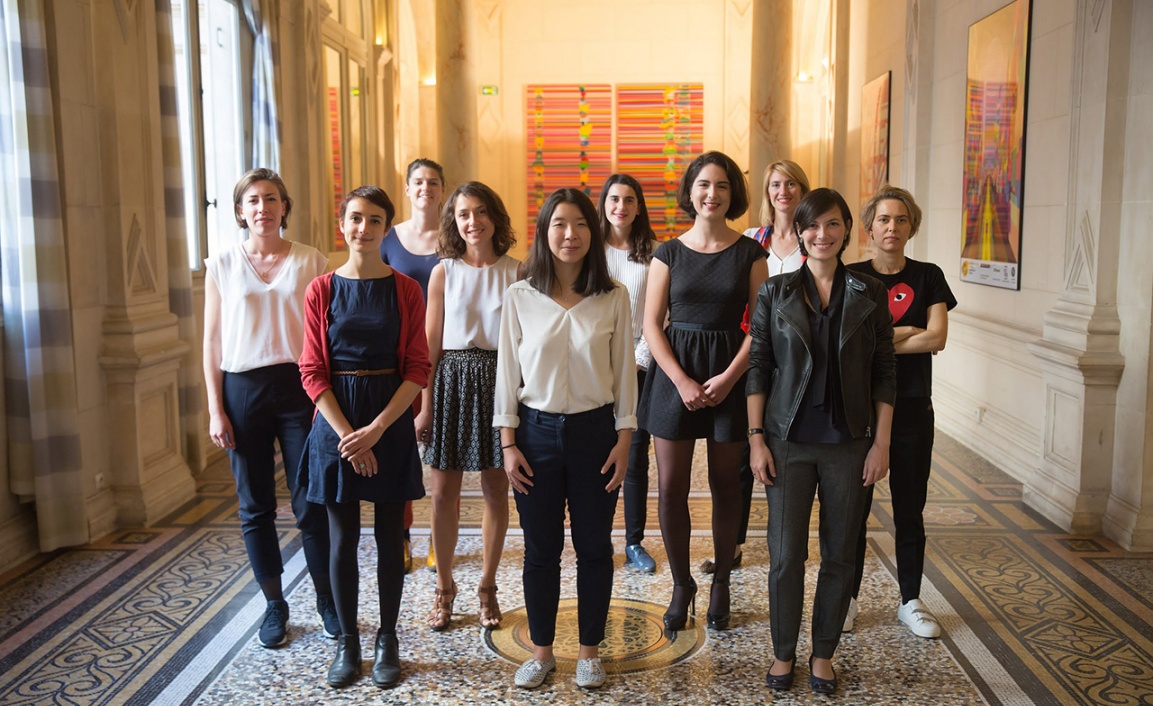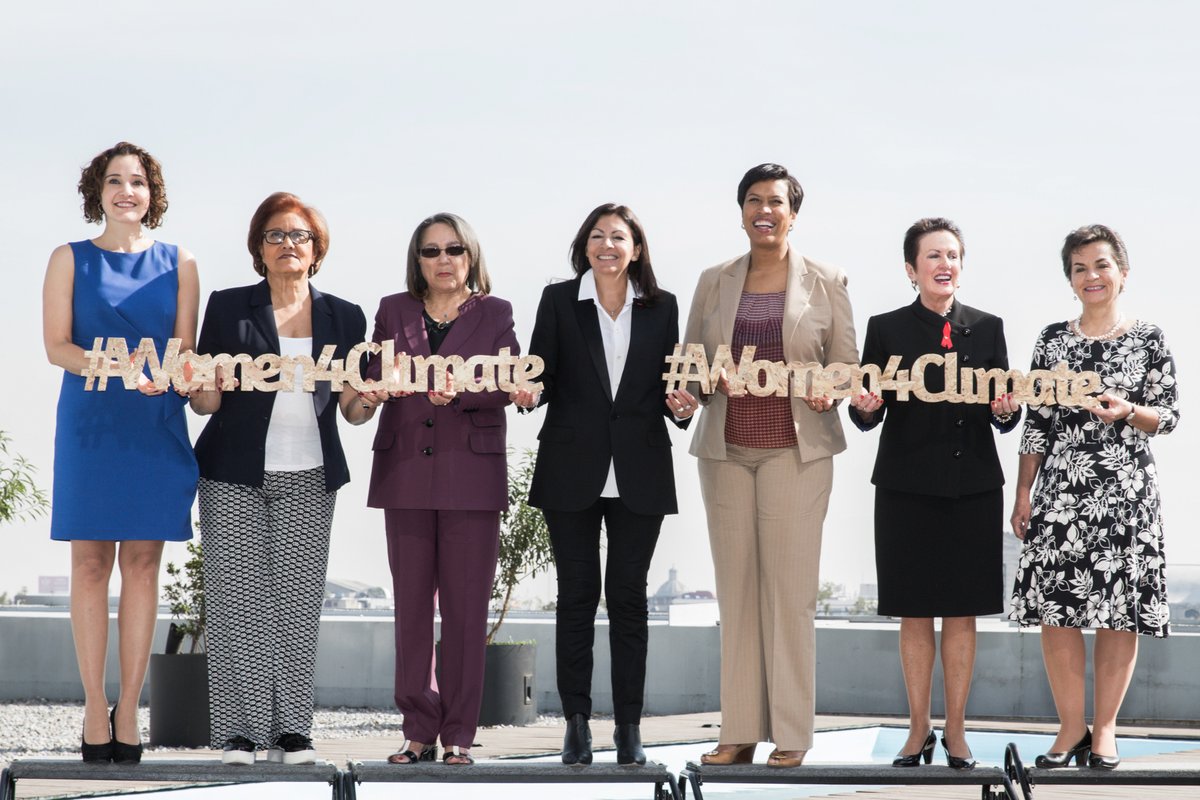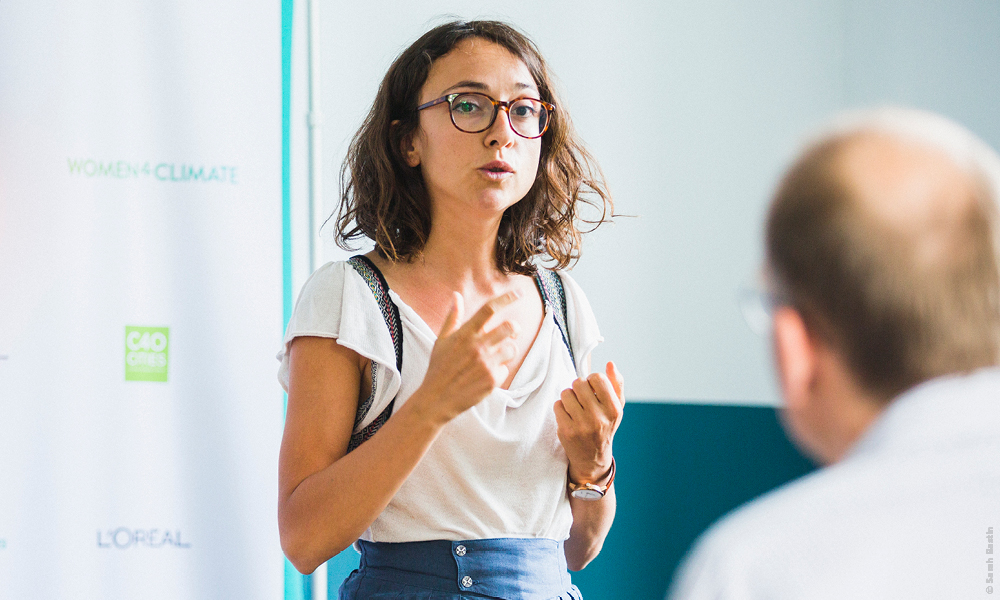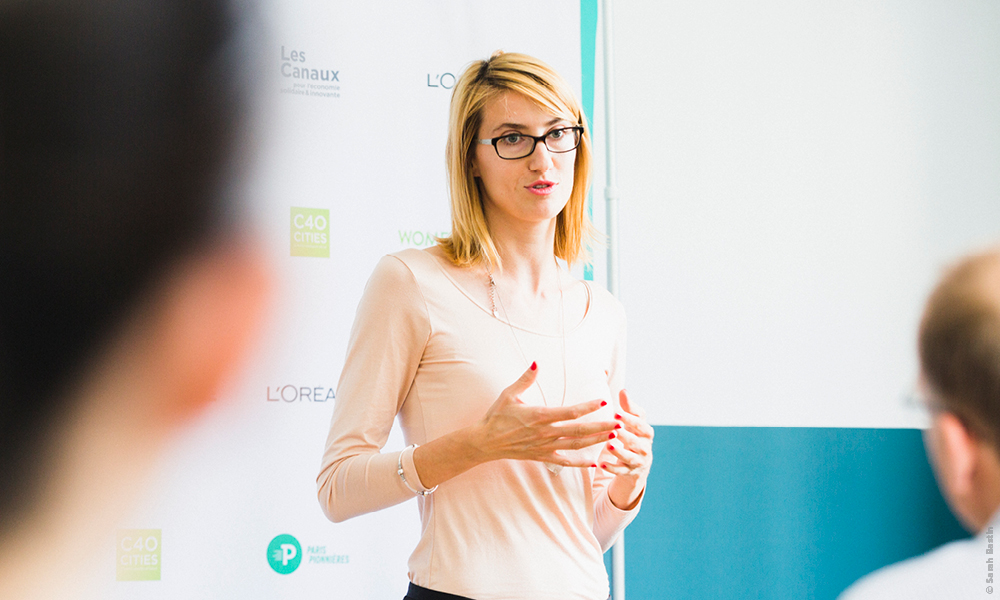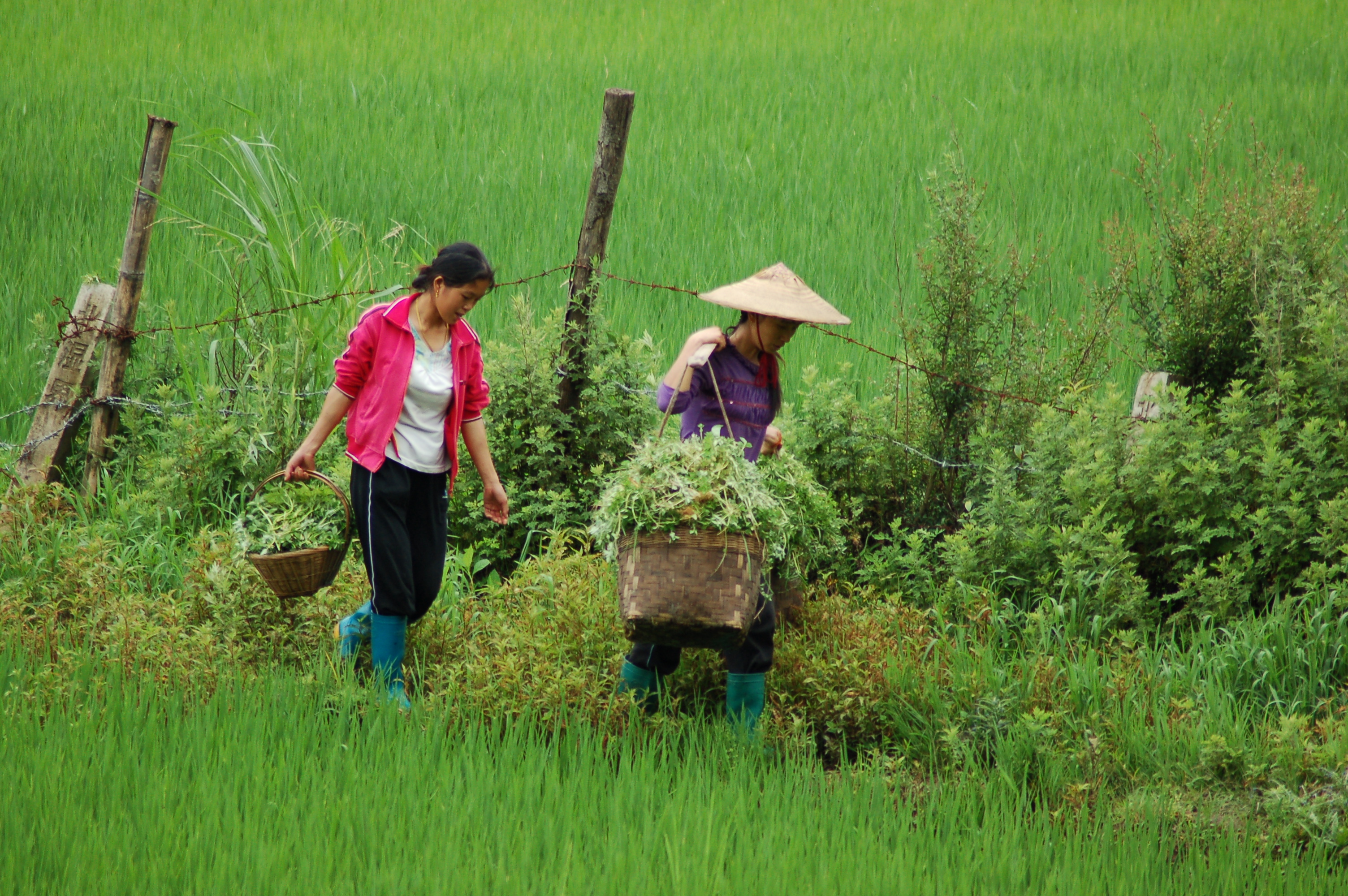As the group that feels the effects of climate change the most, it makes sense that women’s empowerment goes hand in hand with action against it. They are the ones fighting climate change for themselves, for their children, for their family. Globally, women are the ones who bear the major brunt of climate change: Recently released UN figures show that 80% of the people displaced by climate change are women. Not to mention the disproportionate percentage of women already disadvantaged by poverty and exclusion from labor markets.
Policy makers have been slow to incorporate women’s voices into the climate debate. Yet the lack of visibility does not reflect the work and leadership that women have long been exhibiting behind the scenes. C40’s Women4Climate scheme shines a light on women’s contributions, whilst encouraging the next generation of climate change fighters. The Chair of C40, Anne Hidalgo Mayor of Paris recently wrote an article for Impakter entitled “women will save the planet” extolling the role of women on this issue.
Her initiative, the C40 Women4Climate Mentorship Scheme has created a platform for women who are making their mark in an often male dominated entrepreneurial scene. C40 has cherry-picked the most ambitious startup projects surrounding climate issues for further support and paired each mentee with an established woman leader as a mentor.
The scheme was a focus of the recent C40 Women4Climate annual conference held in Mexico City. At the conference, mentees from the program in Paris and Mexico City presented their inspiring projects to government, NGO and private sector leaders from across the world. Impakter was lucky enough to meet three of the mentees creating a spark in Paris.
 Fanny Giansetto of EcoTable, A Climate Fighter for Food
Fanny Giansetto of EcoTable, A Climate Fighter for Food
It was in South America in 2016, when Fanny Giansetto, a Doctor in Law, was confronted with the destructive reality of climate change. Seeing the Patagonia glacier in all of its majestic beauty knowing that it was quickly melting away was a turning point for Giansetto. As an a academic she, naturally, responded by researching and writing a paper on the role of international law in combating climate change. But academia suddenly didn’t feel like enough and instead she decided she “wanted to do something more concrete.”
Back home, over brunch at a Parisian restaurant she glanced down at her plate and realised that she “didn’t know where the food came from.”
Giansetto said that this was in stark contract with the fact that for “consumers who want to understand where their groceries come from, more information is now available at supermarkets and farmers’ markets.” Also local producers are increasingly transparent about how and where their food is grown. So why should it be different when we’re eating out?
“I decided to create a label, based on an environmental audit (we analyse the bills and practices of the restaurant with more than 100 criteria) in order for customers to choose a restaurant based on environmental and health criteria. With two other partners, we created Ecotable.”
Ecotable was born as a social enterprise that certifies and promotes sustainable restaurants and food shops. But Giansetto stressed that it is more than a label, it is also a service that offers restaurants specific advice based on their audit to improve their ecological practices.
Ecotable is already growing to encompass a network of sustainable food actors including local and organic farmers and recycling companies. Giansetto aims to “facilitate the links within the network” through an annual event starting this September in Paris.
Giansetto is passionate about the role of food production in combating climate change. As she notes, “in France alone, 27 million people eat in a restaurant every day. Each one of those meals represents approximately 6 pounds of carbon dioxide (CO2). At the same time, the equivalent of 76,000 meals are wasted every second worldwide.”
The statistics speak for themselves and yet as Giansetto has recognised, for many of us, eating out is not something we link with climate change. But Giansetto urges “if cities like Paris want to deliver on their climate action goals, they need to address the greenhouse gas emissions created by people’s consumption patterns, starting with food.”
Through the C40 Women4Climate scheme Giansetto has been partnered with Alexandra Palt, the L’Oréal Chief Corporate Responsibility Officer and Executive Vice President of the L’Oréal Foundation. Palt’s participation in the scheme reflects her own belief that “women are leading the change towards a more sustainable future.”
She and Giansetto have formed a strong relationship with Palt proclaiming an admiration for Giansetto’s “clear vision, her courage” in helping restaurants “accelerate their transformation towards a more sustainable model to better meet their clients expectations as well as to fight climate change.”
 Katarina Dear of Floating Piers, a Climate Fighter for Aquatic Life
Katarina Dear of Floating Piers, a Climate Fighter for Aquatic Life
As a toddler Katarina Dear dreamed of one day trekking through the Amazonian rainforest. Since then, her imagination and love of nature hasn’t slowed down. Being a passionate entrepreneur Dear has worked in a long list of multi-national organisations as a digital marketer. She combined her corporate life with an extensive list of voluntary activities ranging from protecting marine turtles on the coast of Mexico, to volunteering for the NGO ‘Organe de Sauvetage’ and picking up waste on the banks of the Seine, to joining Greenpeace and the Nicolas Hulot foundation.
Dear is a woman with constant “new ideas on how to either improve, solve a problem or be creative about matters that I face or think about.” And so when she committed herself to environmental issues she started brainstorming ideas about her home city Paris. Dear confessed that “it came quite naturally to turn those ideas into concrete projects.”
For Dear, her ideas all came down to water. She noted that our “source of life” covers about 71 % of the world’s surface and asked “can you imagine if all of it was heavily polluted?” For her, the confronting image is for her why global action is necessary. And for Paris, “water is so present, I thought it was important to preserve it.”
And thus the idea of Floating Piers was born.
The Piers are essentially a series of large scale floating structures designed to house aquatic life. That starts with plants which act to purify the air, diminish the quantity of CO2, filter water, create educational spaces for schools and citizens whilst also creating habitats for fish and birds and making the river and canals more enjoyable.
The first prototype will be launched in Paris later this year and Dear then hopes to take them nationally. The fact that the citizens of Paris have given their wholehearted approval is a resounding encouragement for Dear’s plan and a testament to Paris which she believes “is positioning itself as a negotiator, an initiator for actions and a hub for a lot of interesting actors.”
 Clara Duchalet from Vépluche, a Climate Fighter for Organic Waste
Clara Duchalet from Vépluche, a Climate Fighter for Organic Waste
When Clara Duchalet moved to Paris from rural Southern France to study, she was shocked to find there was no place for her to compost her organic waste. It was only after months of searching that by chance she stumbled on a community garden for her compost. This sparked an interest in how France manages its waste. Duchalet notes that ‘“80% of our trash is incinerated, 10% is recycled … and only 10% is valorized.”
Duchalet wondered what was happening to the food at restaurants she was eating in. When she asked restaurants about composting, she was met with blank faces. Duchalet notes “food catering produces 1, 150, 000 tons of organic waste every year.” To her it makes no sense, considering the potential for compost to be turned into biogas which in turn can be turned into electricity or natural gasoline for vehicles.
And so, still a student, Duchalet made herself the “middle woman” and started Vépluche, a service which collects organic waste from restaurants on bicycles to turn it into biogas.
Duchalet hopes that Vépluche will contribute to a society “where all organic waste will be deviated from the trash to be valorized in energy and natural fertilizers, so that they can be finally returned to the earth, in a circular economy philosophy.”
There is much further to go, Duchalet sees the potential in “vast fields of exploration for agronomic and agro-industrial research” and envisions Vépluche being a “careful observer and protagonist of these developments in order to accompany them and to benefit from them.”
Like Katarina Dear she recognizes the strengths of start-ups in the sector as they “gain more and more legitimacy in bringing feedback from field experiments and asking for more ambitious legal dispositions” from governments.
Duchalet also notes the importance of women’s voices in tackling climate change. As she put it, “women have qualities that fit the needs of action on climate change: understanding and listening capacities, sensitivity, empathy, perseverance and endurance.”
There is no doubt that the three women Impakter met have all those qualities, the very ones that make for effective climate change fighters.
You can read more on the projects and see other projects from the C40 mentorship scheme here.
Editors Note: The opinions expressed here by Impakter.com columnists are their own, not those of Impakter.com Cover Photo Credit: Sophie Robichon /C40


